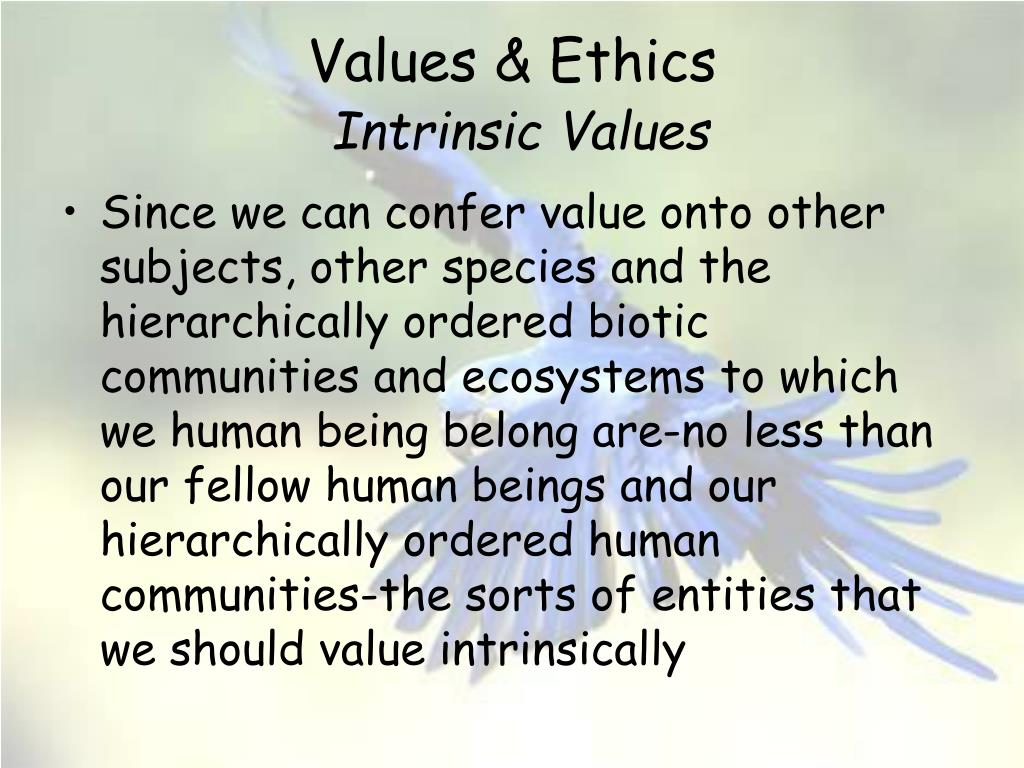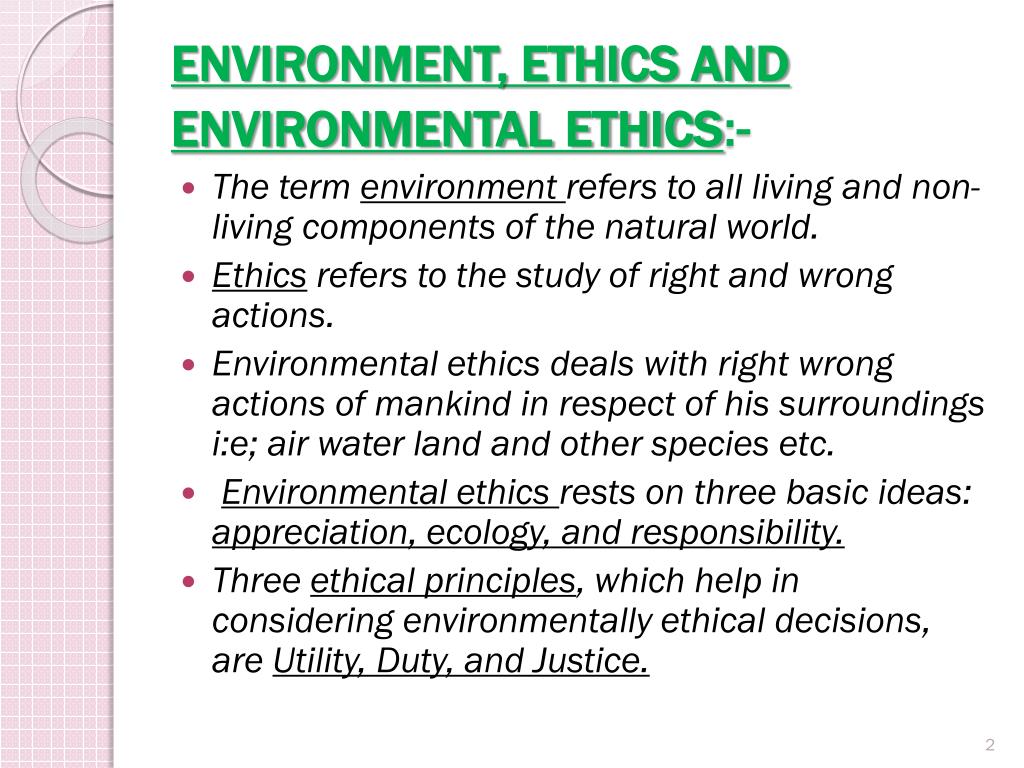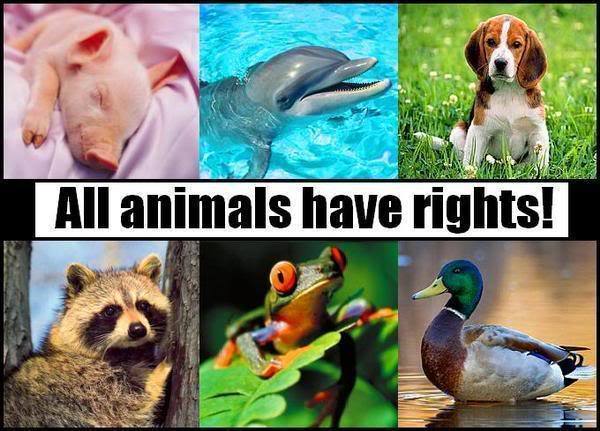Environmental Ethics Presentation
| Introduction to Environmental Ethics | ||
|---|---|---|
| Environmental ethics is a branch of philosophy that deals with the moral and ethical implications of human interactions with the environment. It seeks to answer questions about our responsibilities towards the natural world and how we should value and treat non-human entities. Environmental ethics provides a framework for understanding the ethical dimensions of environmental issues and guiding our actions towards sustainable practices. | ||
| 1 | ||
| Key Principles of Environmental Ethics | ||
|---|---|---|
| Intrinsic Value: Nature has inherent worth and deserves respect and protection for its own sake, independent of its usefulness to humans. Stewardship: Humans have a responsibility to care for and protect the environment, ensuring its sustainability for future generations. Interconnectedness: All living beings are interconnected in a web of relationships, and harming one part of the ecosystem can have far-reaching consequences. | ||
| 2 | ||
| Ethical Theories in Environmental Ethics | ||
|---|---|---|
| Anthropocentrism: This perspective places human interests at the center and values the environment only to the extent that it serves human needs and desires. Biocentrism: This view recognizes the intrinsic value of all living beings and emphasizes the rights and interests of non-human entities. Ecocentrism: This approach considers the entire ecosystem as having intrinsic value and focuses on the well-being of the whole, rather than individual beings. | ||
| 3 | ||
| Environmental Ethics and Climate Change | ||
|---|---|---|
| Climate change is a pressing environmental issue that requires ethical considerations. Environmental ethics calls for taking responsibility for our contributions to climate change and mitigating its effects. It emphasizes the need to transition to renewable energy sources, reduce greenhouse gas emissions, and promote sustainable practices. | ||
| 4 | ||
| Environmental Ethics and Biodiversity Conservation | ||
|---|---|---|
| Biodiversity loss is another significant environmental concern requiring ethical considerations. Environmental ethics advocates for protecting and restoring biodiversity, recognizing the intrinsic value of all species. It calls for preserving habitats, preventing species extinctions, and promoting sustainable land and resource management practices. | ||
| 5 | ||
| Environmental Ethics and Environmental Justice | ||
|---|---|---|
| Environmental justice is the fair and equitable distribution of environmental benefits and burdens. Environmental ethics highlights the importance of addressing environmental injustices, such as pollution and resource exploitation in marginalized communities. It promotes equitable access to clean air, water, and a healthy environment for all individuals, irrespective of their socio-economic status or race. | ||
| 6 | ||
| Environmental Ethics and Animal Rights | ||
|---|---|---|
| Environmental ethics involves considering the ethical treatment of animals and their rights to life, freedom, and well-being. It challenges practices such as factory farming and animal testing, advocating for more compassionate and sustainable alternatives. Environmental ethics recognizes the importance of animal welfare in maintaining a balanced and harmonious ecosystem. | ||
| 7 | ||
| Applying Environmental Ethics in Daily Life | ||
|---|---|---|
| Make conscious choices about consumption and waste management, reducing our ecological footprint. Support and engage in sustainable practices, such as recycling, using renewable energy, and conserving water. Advocate for environmental protection and conservation through education, activism, and responsible citizenship. | ||
| 8 | ||
| Conclusion | ||
|---|---|---|
| Environmental ethics provides a moral framework for addressing environmental challenges and ensuring a sustainable future. It calls for recognizing the intrinsic value of nature, promoting stewardship, and embracing sustainable practices. By incorporating environmental ethics into our decision-making, we can safeguard the environment and create a more just and equitable world for all beings. | ||
| 9 | ||
| References (download PPTX file for details) | ||
|---|---|---|
| Insert a list of references used in the prese... Your second bullet... Your third bullet... |  | |
| 10 | ||








